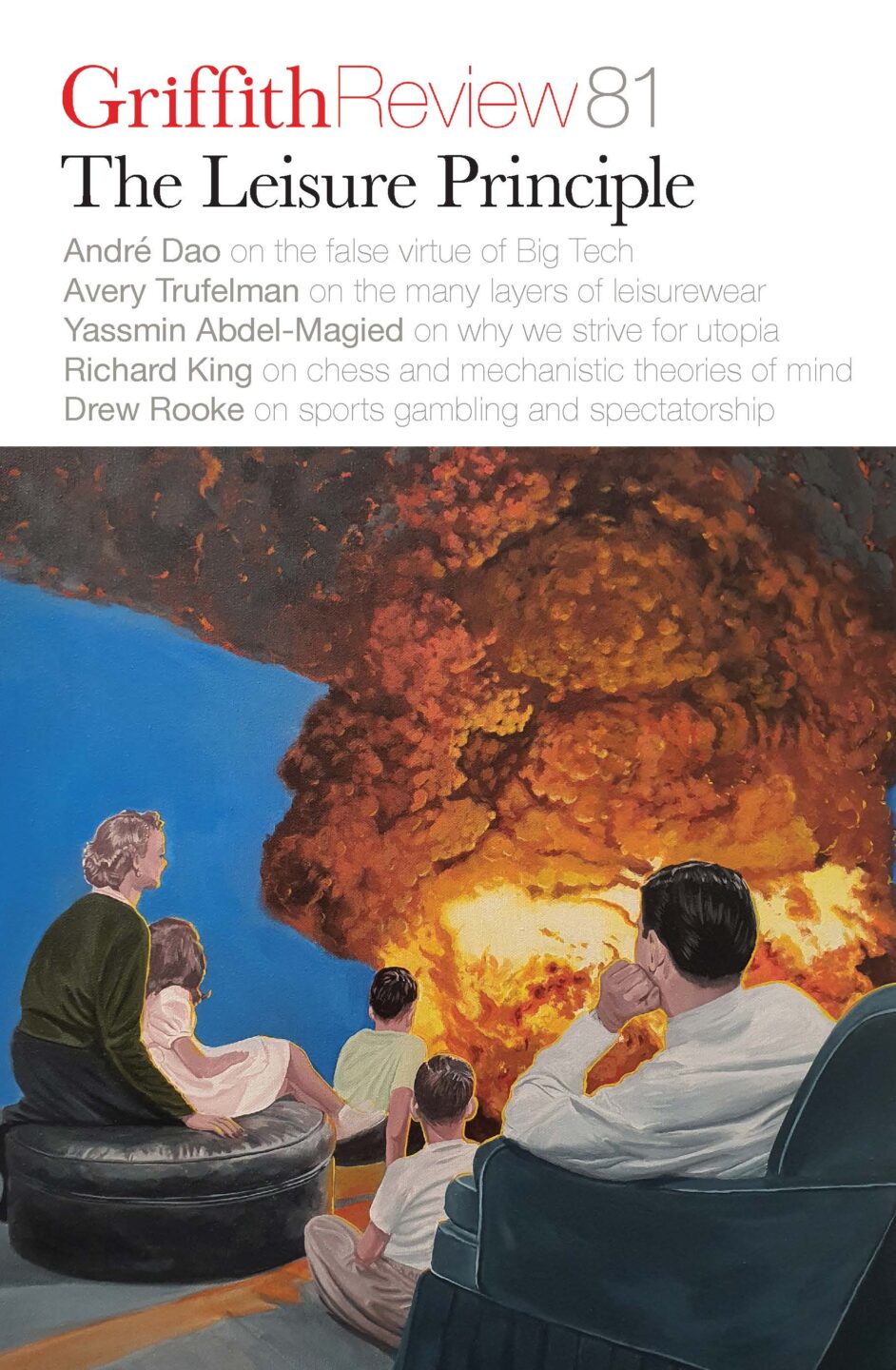Dressed for success
Beneath the layers of business casual
Featured in

- Published 20230801
- ISBN: 978-1-922212-86-3
- Extent: 196pp
- Paperback (234 x 153mm), eBook


Already a subscriber? Sign in here
If you are an educator or student wishing to access content for study purposes please contact us at griffithreview@griffith.edu.au
Share article
About the author

Avery Trufelman
Avery Trufelman is a podcaster and radio producer based in New York. She presents the podcast Articles of Interest andis the former producer of...
More from this edition

Upping the ante
Non-fictionAs it turned out, Centrebet’s move online – coupled with the many other betting innovations it pioneered – led exactly to where Daffy hoped it would: a prodigious pot of gold. He says the company went from taking ‘fifty or sixty bets in one day’ to taking ‘five or 600,000 bets on a Saturday night from all over the world’. By the turn of the millennium, its annual turnover was in excess of $100 million and it had become – in the words of Piers Morgan, its then general manager – ‘one of the leading sports betting organisations in Australia, if not the world’.

Etc.
FictionTogether we were drawn mechanically across the road, boredom/fate reeling us in. The lawn sprawled over the grey-brick kerb. The house was painted green. Sellotaped to the windows were rows of pressed aster. The feeling of something too large to explain was heavy in the air. The door squeaked, swinging open, the main door ajar behind it, and through the gap we glimpsed a white hallway, a pile of discarded shoes on one side.

All work and some play
In ConversationI’m often hearing about odd jobs that musicians or performers had and how it’s tied to their identity. You read about Beat writers like Jack Kerouac and Neal Cassady, who really identified with blue-collar people and railroad workers. After Kerouac got infamous, or famous, he went off to be by himself in a cabin in the forest as a fire lookout. So he went into a very solitary existence, and I like that kind of thing...